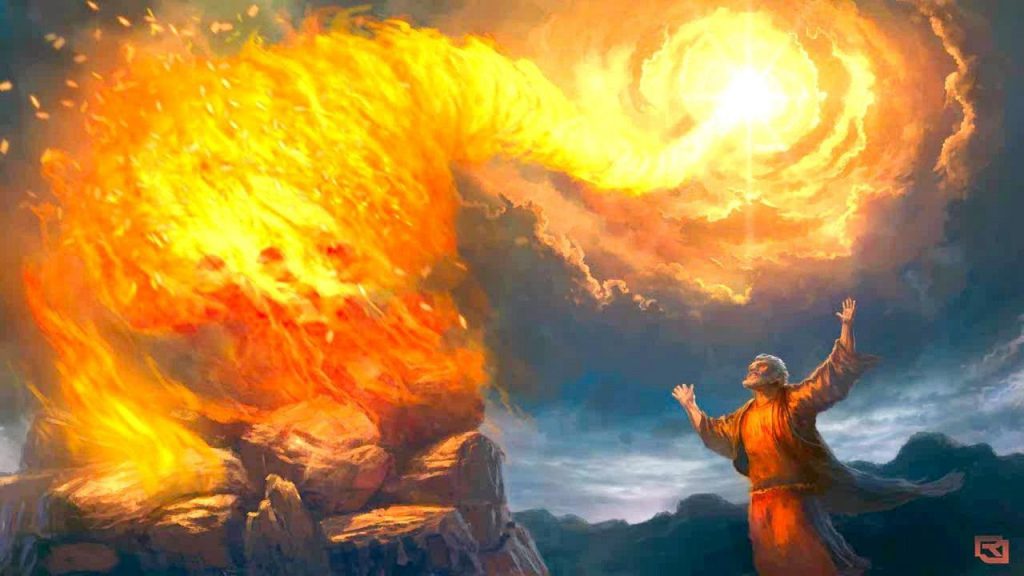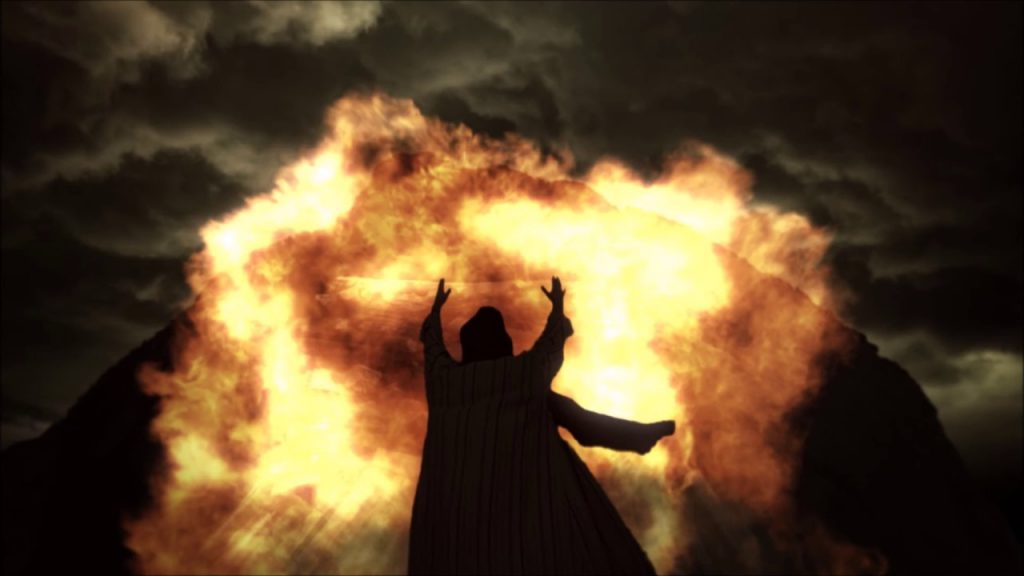God’s Word came to Elijah!
The Word of God made him go back to the nation of Israel to deliver a message to King Ahab. We read the message in 1 Kings 17:1
1 Kings 17:1: Elijah Proclaims a Drought to the king Ahab … “As surely as the Lord, the God of Israel, lives—the God I serve—there will be no dew or rain during the next few years until I give the word!”
This is tremendous! Elijah did not return to Israel on his own accord. He did not proclaim the judgment of God on his own. He went back because God had sent him back.
He was willing to sacrifice his life by going back to face King Ahab, because a prophet of God had no consideration for his own life. A prophet of God was one who obeyed God to the uttermost. If God said go, he went. If God said, “Hide,” he hid. There was absolutely no self-consideration in this man Elijah.
He prayed until God’s mind was revealed to him.
And when God’s mind was revealed to him, he did not hesitate to declare it. He was sent by God to declare judgment upon the nation of Israel in his time.
How did he do it? He went back and said to Ahab, “as Jehovah the God of Israel lives.”—”Though you, King Ahab, did not recognize Jehovah, though the whole nation of Israel did not acknowledge Him, Jehovah is still the God of Israel.”
Now that is faith. It was not because of the circumstances, or change of situation, that the mind of God had changed—not at all. Israel might rebel against God, but God was still the God of Israel. And Elijah stood firm on that ground. He did not give in an inch.
This is not an easy thing to do. How often we are governed by what we see. How often we are influenced by our circumstances!
The reason is that we do not see God. If we see God, then no matter how the circumstances may change, no matter what else happens, God remains the same, yesterday, today, and forever. That is the truth.
When Elijah went back, he did not give in to King Ahab even an inch. He told Ahab, “Jehovah is the God of Israel, and Jehovah the God of Israel lives. He has not died. He is still living.”
Elijah knew out of his personal experience that God still lives. This was not just a bookish knowledge to Elijah. Elijah had a hidden life with God. He had a prayer life with God. And in that hidden life of prayer with God, he knew that God lived.
God spoke to him, and God revealed His mind to him. God sent him out on a mission. When he declared to King Ahab “as Jehovah the God of Israel lives,” he was saying, “Do you think God has died? He hasn’t died. He lives! He hasn’t changed a bit.”
Elijah was a true servant of God because he stood before the presence of God. We cannot stand if we haven’t first sat. We have to sit before God first, and then we will be able to stand before God. To sit before God, is to commune with God. After we commune with God, we are able to stand before Him, to wait upon Him, and to serve Him.
The problem today is that we do not sit, neither do we stand. We just run. We think that we are doing God’s service, and in doing God’s service, we run here and there. And we run all over without really knowing what is in the mind of God. Where does God want to send us? And what does He want us to do? We have no knowledge whatsoever.
A true servant first sits before God. And then, stands before God, waiting upon the Lord. Since Elijah waited upon the Lord, the Lord’s command came to him. He wouldn’t move until God gave the Word. That is a nature of the true servant of God.
Today, we live in a generation of greater privilege and better understanding as Jesus showed us the way and is the express image of Father (Hebrews 1:3).
We can choose to exhibit our true nature as God’s children by carrying Jesus heart and manifesting his heart in our immediate surroundings and to the world at large.

